Business
/ArcaMax

Stellantis CEO shakes up senior leadership team in turnaround effort
Stellantis NV's CEO Antonio Filosa shook up his senior leadership team on Wednesday as he appointed new heads of Europe and South America, a new global manufacturing chief, and made several other personnel moves.
Filosa, who took the top role of the transatlantic automaker in June, has been working to reverse a recent trend of declining sales ...Read more

Minneapolis Fed's Neel Kashkari: Fed cuts might not lead to lower mortgage rates
American consumers are waiting for the Federal Reserve to cut rates so they can buy or sell their homes, but Minneapolis Fed President Neel Kashkari said Tuesday that the long-awaited mortgage rate drop might not materialize.
There’s only so much money to go around, Kashkari said, and the amount of cash flowing into AI — though it’s ...Read more

To treat a common bladder condition, Medtronic implant goes under the skin near the ankle
To make life easier for people with a common bladder condition, Medtronic is digging in far away from urinary tract.
Treatment for urinary urge incontinence can require pads, absorbent underwear and medications that come with bothersome side effects. The Minnesota-run medtech firm’s tiny new implant, designed to help patients forget about ...Read more

GM cuts short EV tax credit extension scheme
General Motors Co. no longer will apply for federal electric vehicle tax credits as part of a scheme to extend savings to customers after Congress and President Donald Trump axed the government incentive program in September, the Detroit automaker confirmed Wednesday.
The company will continue to offer about $6,000 in savings on EV leases ...Read more
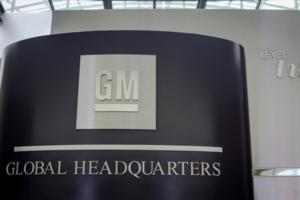
Trump mulls canceling $1B in grants for GM, Stellantis projects
WASHINGTON — President Donald Trump could soon move to cancel more than $1 billion in federal grants for General Motors Co. and Stellantis NV and $800 million total in Michigan, according to a Trump administration planning document obtained by The Detroit News.
The largest Michigan grant in question is a $500 million award for GM to convert ...Read more
GM sees manganese as a winning path in battery race with China
DETROIT — General Motors Co.'s global battery leader detailed plans to introduce the first electric vehicle powered by a lithium manganese-rich battery in 2028, an example of automakers' strategy to leapfrog EV powerhouse China with new technologies.
GM plans to unveil an LMR truck shortly after beginning manganese-rich battery production at ...Read more

'People are going to die': Idahoans fear spike in insurance costs
At 59, Susan Wood, a longtime Boise, Idaho, resident, was too young to qualify for Medicare when she retired in July. So she signed up for a marketplace plan under the Affordable Care Act, often called Obamacare.
But in the months since, the federal government’s proposed changes to health insurance have threatened to upend her planning — ...Read more

Chatbot dreams generate AI nightmares for Bay Area lawyers
A Palo Alto, California, lawyer with nearly a half-century of experience admitted to an Oakland federal judge this summer that legal cases he referenced in an important court filing didn’t actually exist and appeared to be products of artificial intelligence “hallucinations.”
Jack Russo, in a court filing, described the apparent AI ...Read more
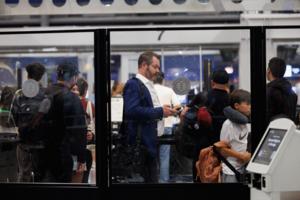
Staffing issues cause ground delay at O'Hare amid government shutdown
The Federal Aviation Administration issued a ground delay at O’Hare International Airport on Tuesday due to staffing issues as a federal government shutdown nears the end of its first week.
Delays at O’Hare, which were expected to average 41 minutes, come as flight disruptions have spread to airports across the country. According to the FAA...Read more

Starbucks lays off hundreds of WA workers after store closures
After sweeping store closures around the country last month, Starbucks will lay off 369 employees in Washington, according to a state filing.
A notice filed with Washington state's Employment Security Department on Friday shows the Seattle-based coffee giant's Washington layoffs will be effective Dec. 5.
Closure is the reason for the layoffs, ...Read more

J&J must pay record $966 million in talc baby powder cancer case
Johnson & Johnson was told by a California jury to pay $966 million to the family of a deceased woman who blamed her cancer on life-long use of the company’s baby powder in the largest verdict for a single user in the 15-year litigation.
The Los Angeles state court jury late Monday found J&J liable for Mae Moore’s mesothelioma — a cancer...Read more

Why did Tesla's discounts disappoint consumers and investors?
Tesla investors and consumers were disappointed after the company unveiled its long-awaited, less expensive versions of the Model 3 and Model Y.
Intended to help Tesla reach a broader customer base and shed its reputation as a company that caters only to the wealthy, the new models are still not affordable enough and unlikely to trigger a ...Read more
Lawsuit challenging Trump H-1B visa fee details potential harms
A lawsuit challenging President Donald Trump’s new $100,000 fee on H-1B visas describes the kinds of harms it could have on health care, education and religious groups that seek to employ foreign talent to complement their workforce.
The complaint, filed by a mix of employers and unions Friday in the U.S. District Court for the Northern ...Read more
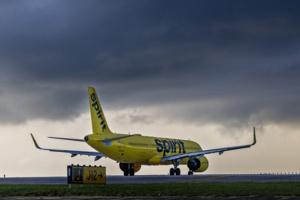
Spirit wants to cut number of airplanes in a bid to keep flying. See the plans
Spirit Airlines has reduced destinations and furloughed flight attendants, many in South Florida. Now it’s cutting the number of airplanes it flies in its ongoing quest to survive.
The Florida-based carrier wants to void lease agreements for 87 airplanes, Spirit said in a request last week with a federal bankruptcy court in New York. The ...Read more

Fire disrupts aluminum supply for Ford, other automakers
Ford Motor Co. said it's working to minimize manufacturing disruptions after a fire took out a New York plant that supplies roughly 40% of the aluminum sheet used in the auto industry.
Aluminum makes up the bodies of the Automaker's F-Series trucks, the country's best-selling vehicles that drive the company's earnings. A late-night fire on Sept...Read more

A huge $600 million casino -- bigger than many Vegas rivals -- is coming to California next month
A massive new tribal casino — big enough to rival the largest casinos in Las Vegas — is scheduled to open its doors next month in the Central Valley.
The Hard Rock Casino Tejon, which is set to open Nov. 13, will be the first full-scale casino in Kern County. The property is owned by the Tejon Indian Tribe and will be managed by Hard Rock ...Read more
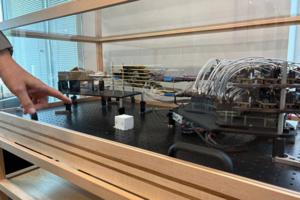
Ten years after prototype, anti-drunken driving tech ready for rollout
LEESBURG, Virginia — Ten years after unveiling a prototype, a key public-private research effort is taking a major leap toward getting its advanced alcohol detection technology into the hands of the country's top auto manufacturers.
"We've converted a wild, audacious idea that everybody thought would fail — people laughed us out of the room...Read more

Consumers get surprise sticker shock ordering imports online
Every year, Ventura County, California, resident Carlos Soto buys a Liverpool Football Club jersey for his son to celebrate the start of the soccer season. This year it was delivered with an additional bill of $107.
"The UPS guy said he couldn't release it unless I paid more," said Soto, who owns the Historia Bakery Cafe in Thousand Oaks. "...Read more

Furor over Jimmy Kimmel exposes challenges for Bob Iger's Disney successor
A 10-second bit by ABC comedian Jimmy Kimmel plunged Walt Disney Co. into a full-blown crisis that rippled across America.
President Trump, the Federal Communications Commission chief and others were angered last month over Kimmel’s remarks about the Charlie Kirk shooting, which they said had suggested the suspect was a “Make America Great ...Read more
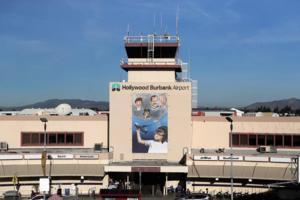
Burbank Airport air traffic control tower unmanned, flights delayed amid government shutdown
The Hollywood Burbank Airport's air traffic control tower is temporarily unmanned and flights were delayed Monday afternoon due to staffing shortages amid the ongoing government shutdown, according to the Federal Aviation Authority.
The FAA anticipates that the airport's air traffic control tower will be without staff until 10 p.m., according ...Read more
Popular Stories
- J&J must pay record $966 million in talc baby powder cancer case
- A huge $600 million casino -- bigger than many Vegas rivals -- is coming to California next month
- Fire disrupts aluminum supply for Ford, other automakers
- Trump mulls canceling $1B in grants for GM, Stellantis projects
- Google argues a forced sale of Ad Exchange is too risky










